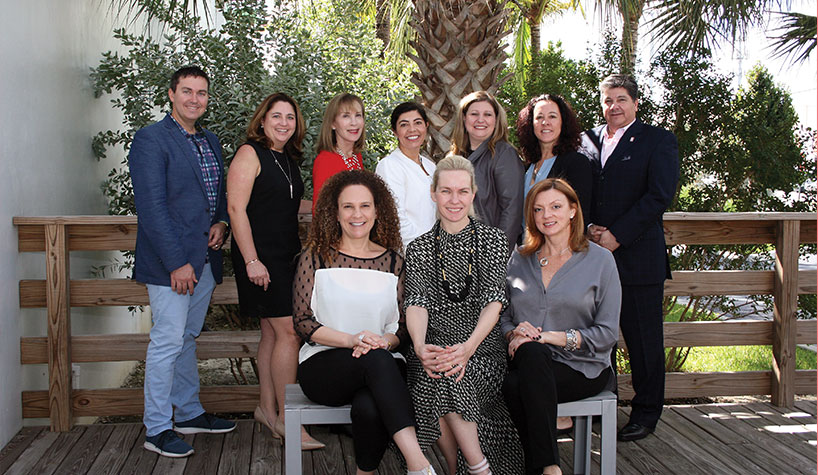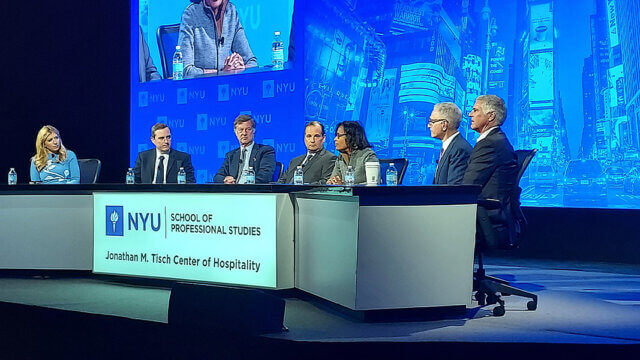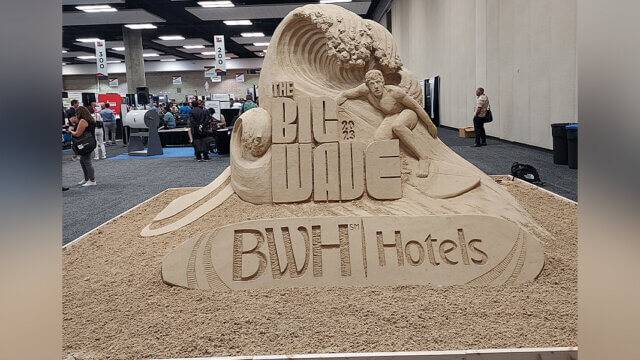FORT LAUDERDALE, FL—Sustainability is a complex concept. While there are many environmental benefits, it can also be considered costly and a logistical challenge. Can a focus on sustainability and maximizing profitability coexist?
Hosted and sponsored by Valley Forge Fabrics Inc., the Hotel Business Executive Roundtable, “Balancing the Green: The Environment & The Bottom Line” brought hospitality experts together this month to explore pricing, products and practices—as well as the decision-making processes that go into selecting (or not) sustainable products for hotel projects.
“We wanted to pull all of you together because we really wanted your feedback so we can continue to invest in the right areas within our products,” said Diana Dobin, president, Valley Forge Fabrics Inc. “From what I’m hearing, the designers at the table have said, ‘Yes, please keep investing in your sustainable products.’ So things like roller shades and draperies and upholstery, we will continue to do all that.”
A leader in hospitality upholstery fabrics, Valley Forge Fabric’s sprawling 73,000-sq.-ft. headquarters houses a significantly sized performance textile archive, a fabric-testing laboratory and high-tech textile production areas. Designed by Stantec, the facility is also certified LEED Silver and making it a fitting location to discuss how sustainability can be more widespread in the hospitality industry.
While the hospitality industry as a whole has made great strides in terms of implementing sustainability, everyone agreed there’s much more work to be done.
“We are building upon what we started by leveraging what matters to guests and making it palatable to developers,” said Amy Hulbert, VP of boutique & upscale brands, Best Western Hotels & Resorts. “We must educate people and make sure everyone understands what the options are.”
It’s about building a narrative and properly communicating all of the benefits to key stakeholders at the very start of the project.
“We need to be more proactive in asking questions at the beginning, and ask about sustainability instead of being the passive actor in the project. We should bring it up front and try to get them to think differently,” said Linda Hein, SVP of training & development, The Parker Company.
Walter Barela, principal of Peak Hospitality, added, “Passion is infectious. If you believe, I will believe. Give me an option to choose. Tell the story correctly and people will bite.”
“It’s about education. We all have a part of it,” said Liliane Moura, VP of business development at Benjamin West. “You do have to tie in the economic benefits. We have a lot of power. We touch so many people. We’re not doing enough, and it’s so needed.”
The participants wholeheartedly agreed that it’s simply not an option to overlook nor neglect matters of sustainability as the risk is too great.
“In presentations I give on sustainability, I like to use this quote from The Lorax by Dr. Seuss: ‘Unless someone like you cares a whole awful lot, nothing is going to get better. It’s not,’ said Chris Kearney, LEED AP and VP of EXP. “We have to show we care. It’s not about payback but doing the right thing.”
For more on Hotel Business’ roundtable on how industry leaders can create more opportunities for sustainability in hotel projects, read the upcoming March 7 issue.


